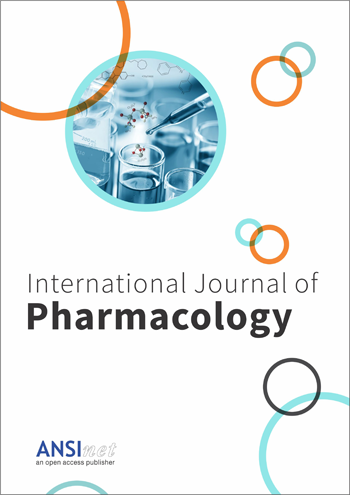International Journal of Pharmacology
International Journal of Pharmacology (IJP) is an internationally recognized Journal, contains peer-review material and provides broad coverage of all aspects of the interactions of drugs and medicines with biological systems (chemical, physiological and behavioral effects); including autonomic, behavioral, cardiovascular, cellular, clinical, developmental, gastrointestinal, immuno-, neuro-, pulmonary, and renal pharmacology, as well as analgesics, drug abuse, metabolism and disposition, chemotherapy, and toxicology, pharmaceuticals, neutraceuticals, immunomodulation, vaccines and vaccines based therapies, pharmacogenomics aided drug development and therapeutics, pharmacokinetics, pharmacodynamics, modes of action and metabolism of effective drugs and medicines, various upcoming drug designing and novel drug delivery methods. It also emphasizes frontiers in therapeutic advances and their biomedical perspectives including advances and recent trends in various prophylactic and therapeutic regimens to effectively combat various diseases and other health problems, both infectious and non-infectious posing challenge to the humans and their companion animals. Novel, emerging and valuable alternate / complementary therapeutic options with interdisciplinary approaches of biotechnology, molecular aspects of drug actions, mechanism and toxicity, genetics, cellular immunology, immunomics, proteomics, pharmacology, bioinformatics, nanotechnology would be the given due focus.
International Journal of Pharmacology now accepting new submissions. Submit your best paper via online submission system.
